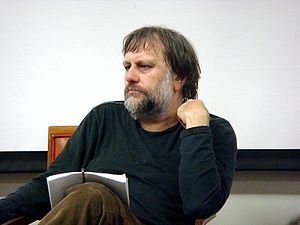Jeg er de sidste dage stødt ind i nogle af mine yndlingspolemikeres tanker om revolutionen/oprøret/demonstrationerne i Egypten. Jeg har samlet nogle af deres udgydelser nedenfor. Jeg er endnu ikke faldet over (omend jeg aktivt har forsøgt at falde) væsentlige kvinderettighedsbaserede eller feministiske artikler, der diskutterer forskellene mellem et (demokratisk) lederskab med Det Muslimske Broderskab og forholdene under Mubaraks styre. Skriv en kommentar nedenfor, hvis du har et godt link.
Noam Chomsky
I et interview med Democracy Now! (del 1/del 2) analyserer Noam Chomsky USA’s rolle i Mellemøsten – selvfølgelig især i Egypten, men han kommer også forbi Iran, Israel, Tunesien, Jordan og Yemen. Det er et langt, men usandsynligt godt interview, som jeg her har kogt ned til blot at være langt (originalen er dog det hele værd):
Well, this is the most remarkable regional uprising that I can remember. I mean, it’s sometimes compared with Eastern Europe, but that’s not much of a comparison. […] in the case of Eastern Europe, the United States and its allies followed the timeworn principle that democracy is fine, at least up to a point, if it accords with strategic and economic objectives, so therefore acceptable in enemy domains, but not in our own. That’s a well-established principle, and of course that sharply differentiates these two cases. In fact, about the only moderately reasonable comparison would be to Romania, where Ceausescu, the most vicious of the dictators of the region, was very strongly supported by the United States right up ’til the end. And then, when he—the last days, when he was overthrown and killed, the first Bush administration followed the usual rules: postured about being on the side of the people, opposed to dictatorship, tried to arrange for a continuation of close relations.
But this is completely different. Where it’s going to lead, nobody knows. I mean, the problems that the protesters are trying to address are extremely deep-seated, and they’re not going to be solved easily. There is a tremendous poverty, repression, a lack of not just democracy, but serious development. Egypt and other countries of the region have just been through a neoliberal period, which has led to growth on paper, but with the usual consequences: high concentration of extreme wealth and privilege, tremendous impoverishment and dismay for most of the population. And that’s not easily changed. We should also remember that, as far as the United States is concerned, what’s happening is a very old story. […]
Well, actually, the fact of the matter is that WikiLeaks are not really telling us anything dramatically new. They’re providing confirmation, often, of reasonable surmises. Tunisia was a very interesting case. So the ambassador did have a—one of the leaks comes from the ambassador, July 2009, and he describes Tunisia. He says it’s a police state with little freedom of expression or association, serious human rights problems, ruled by a dictator whose family is despised for their corruption, robbery of the population and so on. That’s the assessment of the ambassador. Not long after that, the U.S. singled out Tunisia for an extra shipment of military aid. Not just Tunisia, also two other Arab dictatorships—Egypt and Jordan—and of course Israel—it’s routine—and one other country, namely Colombia, the country with the worst human rights record in the western hemisphere for years and the leading recipient of U.S. military aid for years, two elements that correlate quite closely, it’s been shown.
Well, this tells you what the understanding was about Tunisia—namely, police state, a bitterly hated dictator and so on. But we send them more arms afterwards, because the population is quiet, so everything’s fine […]
There has been one free election in the Arab world, exactly one really free election—namely, in Palestine, January 2006, carefully monitored, recognized to be free, fair, open and so on. And right after the election, within days, the United States and Israel announced publicly and implemented policies of harsh attack against the Palestinian people to punish them for running a free election. Why? The wrong people won. Elections are just fine, if they come out the way we want them to […]
Well, if I were—if I had made it to the presidency, meaning with the kind of constituency and support that’s required to be a president in the United States, I’d probably do what Obama’s doing. But what ought to be done is what Erdogan is doing. Turkey is becoming the most significant country in the region, and it’s recognized. Erdogan is far and away the most popular figure. And they’ve taken a pretty constructive role on many issues. And in this case, he is the one leading public figure, leader, who has been frank, outspoken, clear, and says Mubarak must go now. Now is when we must have change. That’s the right stand. Nothing like that in Europe, and nothing like that here.
Slavoj Žižek
Som forventet er Slavoj Žižek i endnu højere grad fortaler for egentlig revolution og styrkelsen af venstrefløjen i Egypten. I et blogindlæg på The Guardian skriver han:
If the situation is eventually stabilised so that the old regime survives but with some liberal cosmetic surgery, this will generate an insurmountable fundamentalist backlash. In order for the key liberal legacy to survive, liberals need the fraternal help of the radical left. Back to Egypt, the most shameful and dangerously opportunistic reaction was that of Tony Blair as reported on CNN: change is necessary, but it should be a stable change. Stable change in Egypt today can mean only a compromise with the Mubarak forces by way of slightly enlarging the ruling circle. This is why to talk about peaceful transition now is an obscenity: by squashing the opposition, Mubarak himself made this impossible. After Mubarak sent the army against the protesters, the choice became clear: either a cosmetic change in which something changes so that everything stays the same, or a true break.
Here, then, is the moment of truth: one cannot claim, as in the case of Algeria a decade ago, that allowing truly free elections equals delivering power to Muslim fundamentalists. Another liberal worry is that there is no organised political power to take over if Mubarak goes. Of course there is not; Mubarak took care of that by reducing all opposition to marginal ornaments, so that the result is like the title of the famous Agatha Christie novel, And Then There Were None. The argument for Mubarak – it’s either him or chaos – is an argument against him.
The hypocrisy of western liberals is breathtaking: they publicly supported democracy, and now, when the people revolt against the tyrants on behalf of secular freedom and justice, not on behalf of religion, they are all deeply concerned. Why concern, why not joy that freedom is given a chance? Today, more than ever, Mao Zedong’s old motto is pertinent: “There is great chaos under heaven – the situation is excellent.”
Where, then, should Mubarak go? Here, the answer is also clear: to the Hague. If there is a leader who deserves to sit there, it is him.
De samme tanker – og mere til – kan også opleves i interviewet nedenfor fra Al Jazeera med islamforskeren (og barnebarn af stifteren af Det Muslimske Broderskab, Hassan al-Banna) Tariq Ramadan og Žižek, hvor Žižek fortæller, at suituationen i Egypten er “Universalism at work”. Omend i den ikke-religiøse udgave, hvor det er kampen for frihed, menneskerettigheder og økonomisk lighed, der kæmpes for. Ikke en islamisk stat:
http://www.youtube.com/watch?v=29NffzEh2b0[/youtube]
Immanuel Wallerstein
Den amerikanske verdenssystemteoretiker Immanuel Wallerstein (en af mine sociologfavoritter) skriver om “The Second Arab Revolt: Winners and Losers“:
Of course, after Ben Ali [Tunesiens nu tidligere præsident] fled, the whole world applauded, with the sole exceptions of Kaddafi of Libya and Berlusconi of Italy, who continued to defend Ben Ali’s virtues. Ben Ali’s chief outside supporter, France, was sufficiently embarrassed to confess its “errors” of judgment. The United States, having left Tunisia to the supposedly safe hands of the French, did not feel the need to make a similar apology […]
Now, who are winners and losers? We shall not know for at least six months, perhaps longer, who will actually come to power in Tunisia, in Egypt, indeed everywhere in the Arab world. Spontaneous uprisings create a situation like that in Russia in 1917 when, in Lenin’s famous phrase, “power lay in the street,” and therefore an organized, determined force could seize it, which the Bolsheviks did.
The actual political situation in each Arab state is different. There is no Arab state today that has a strong organized, secular, radical party like the Bolsheviks, ready to try to take power. There are various bourgeois liberal movements that would like to play a major role, but few of them seem to have an important base. The most organized movements are the Islamist ones. But these movements are not of a single color. Their versions of an Islamic state range from those relatively tolerant of other groups, such as exists today in Turkey, to a harsh version of Shar’ia law (as the Taliban enforced in Afghanistan) to in-between varieties such as the Muslim Brotherhood in Egypt. The outcomes in terms of the internal regimes are uncertain and evolving. And therefore who wins internally is extremely unsure […]
The second Arab Revolt is occurring amidst a worldwide chaotic situation in which three features are dominant – a declining standard of living for at least two-thirds of the world’s populations; outrageous increases in the current income of relatively small upper strata; and a serious decline in the effective power of the so-called superpower, the United States. The second Arab Revolt, however it turns out, will further erode U.S. power, especially in the Arab world, precisely because the one sure base for political popularity in these countries today is opposition to the intrusion of the United States in their affairs. Even those who normally want and depend on U.S. involvement are finding it politically dangerous to continue to do so.
The biggest outside winner is Iran. The Iranian regime is no doubt viewed with considerable suspicion, partly because it is non-Arab and partly because it is Shi’a. It is however U.S. policy that gave Iran its greatest present – the ouster of Saddam Hussein from power. Saddam had been Iran’s fiercest and most effective enemy. The Iranian leaders probably say a daily blessing to George W. Bush for this wonderful present. They have built on this windfall by an intelligent policy wherein they have shown themselves ready to support non-Shi’ite movements such as Hamas, provided only that they are strongly opposed to Israel and to U.S. intrusion in the region.
Robert Fisk
Følg derudover som altid Robert Fisks artikler hos The Independent. Han er og bliver journalistikkens yperste repræsentant.



Super godt indlæg René. Havde ikke fået taget mig sammen til at læse Chomsky interviewet, og nu behøver jeg ikke have dårlig samvittighed
/Peter